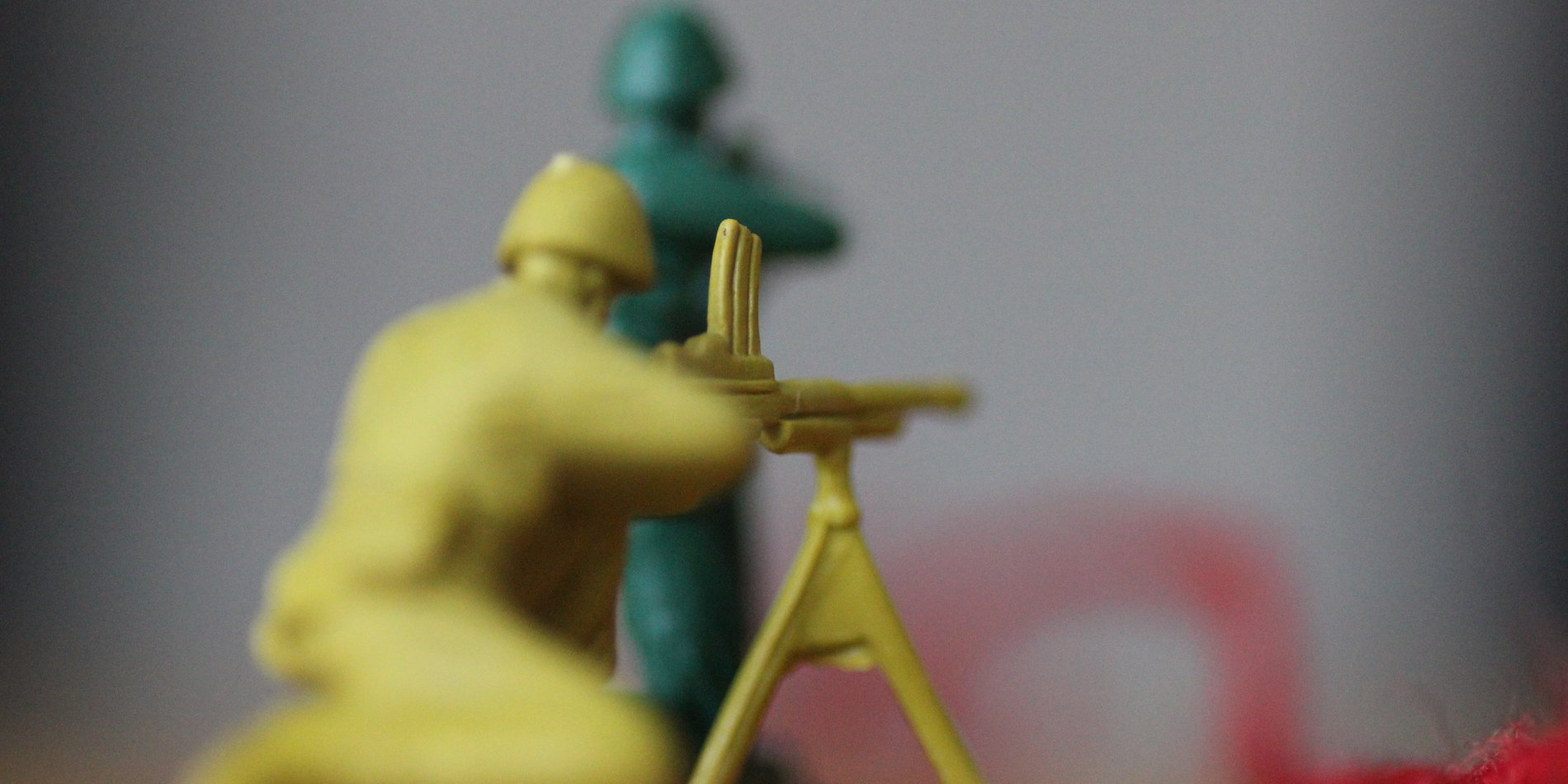PSYC 30N: The Terrible Toll of Close Combat: Fact and Myth from Xenophon to Fallujah to the X-Box
General Education Requirements
Not currently certified for a requirement. Courses are typically considered for Ways certification a quarter in advance.
This course is expected to experience high student demand. Frosh, sophomores, and new transfers who decide to rank a high-demand course when making their three selections for priority enrollment are advised to select other IntroSems being offered the same quarter for their second and third choices.
Course Description
“Close Combat” is the direct, violent encounter of troops at short range. Commanders, historians, and politicians may view grand elements of strategy, logistics or tactical maneuver to assess armed conflict. But in close combat, soldiers on that “thin red line” face a rapidly narrowing set of possibilities as terrain, time and distance are focused to a point of brutal action. Psychologically this is the vanishing point of legal, moral, and religious proscriptions that have guided life to that point where, it is said, the soldiers becomes “transparent”: all that one is or hoped or dreamt can be abruptly extinguished en toto.
In this course we will examine the sociobiological, medical, psychological, and legal aspects of close combat: including the systematic preconditioning of soldiers for killing, the fraternal social milieu of the small combat unit and the impact on survivors who need to deconstruct that conditioning and social bond. We will examine first-hand descriptions of close combat, through memoir, literature, testimony, and guest speakers. The perspective will be that of the long history of youth facing the bleed edge of battle and the recent ambiguous implications of “remote” and “virtual” combat.
Course will include preparatory excerpted reading, short didactics, occasional guest speakers for half the sessions and group discussion of session topics. The student will be expected to write a short paper on each of two topics from a list of prompts.
Meet the Instructor: Eugene J. Carragee

Dr. Eugene J. Carragee (LTC, USAR, ret.) is a Professor in the School of Medicine. He enlisted in the USMC at age 17, served as a rifleman in the Republic of Vietnam and later in the months leading up to the evacuation of Saigon, RVN in April 1975. He served in US Army Special Operations Forces, UN peacekeeping missions, and in combat operations in Southwest Asia with US Army Special Operations Forces. He served as Battalion, Brigade and Command Surgeons, on the General Staff in SOF, as well as operations in Korea, Laos, Thailand, Uzbekistan, and North Africa. He has been on the School of Medicine Faculty since 1991. He has published extensively on troop preparation for combat, combat trauma, psycho-physiological effects of combat and long-term effects of exposure to close combat.



